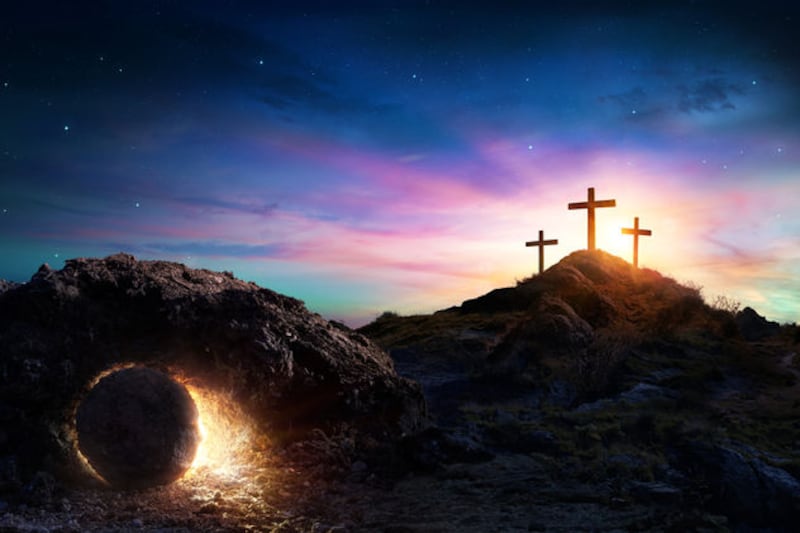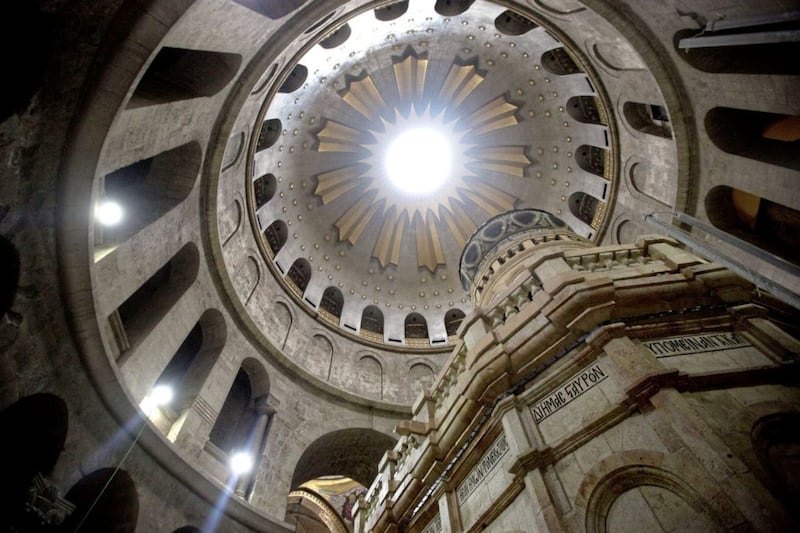IT is a sobering thought to realise that Jesus was put to death by representatives of the established order in both state and religion.
He wasn't killed by people we normally think of as evil: he wasn't killed by gangsters or terrorists or criminals, but by people we normally think of as guardians of law and order.
From the religious point of view what occurred was a clash between two different interpretations of Scripture.
Jesus saw his death as foretold in Scripture: "The Son of Man does indeed go to his fate even as it has been decreed... Yes, what Scripture says about me is even now reaching its fulfilment" (Luke 22:22, 37).
The leaders of his people didn't recognise him as fulfilling their Scriptures, but as contradicting them.
It was this difference in understanding the Scriptures that provoked the tragic clash between Jesus and the leaders of his own people, which climaxed in the death of Jesus, and brought the human race to redemption.
If those who killed Jesus had been self-evidently evil, his death would be less puzzling, certainly less moving.
It is the fact that he was killed by ordinary, average people, doing their best in a difficult, volatile situation that is so shocking, and so unnerving.
Because while it is unrealistic for most people to recognise themselves in some flamboyant criminal, it is much easier and much more realistic to recognise ourselves in the ordinary, normal people we meet in the Gospels who for the most part just try to muddle through life as best they can, without really understanding what the whole business is all about and without any thought of doing anything heroically good or anything spectacularly evil on the way.
The leaders of the Jews were just like that: ordinary men, trying to guide their people through a tricky political period, hoping for the best, wanting to keep major trouble at bay.
And they were genuinely convinced that Jesus deserved to die for blaspheming, for claiming to be the Son of God.
How many of our actions, which we honestly think we are carrying out in accordance with the will of God, are in fact contrary to that will?
The story of the Passion raises yet again for us the ultimate question of who God is and of how God acts in history.
Jesus saw his death foretold in Scripture. Does this mean that those who handed him over to death had no choice?
They were in fact God's choice, members of the chosen people. Would it have been better for them, had God not singled them out for special status?
Such questions are impossible to answer, but they are serious ones.
If those who killed Jesus had been self-evidently evil, his death would be less puzzling, certainly less moving. It is the fact that he was killed by ordinary, average people, doing their best in a difficult, volatile situation that is so shocking, and so unnerving
There is an undercurrent of danger, of evil and of tragedy running through the Passion story, an awareness of the closeness of religion to catastrophe and failure and destruction.
Man is God's risk, and that risk sometimes has disastrous consequences.
Yet it is part of the mystery of God that we can never know from human history just what exactly God is like or what he will do to us and for us.
"No-one has ever seen God," as St John puts it. So we can't pass the Last Judgement, which is God's judgement, on anyone, including those who handed Jesus over to death.
The paradox of their situation is that they triggered off a series of events that led finally to the death of Jesus.
But without that death our redemption would not have been achieved. Are we then, perhaps, in some obscure way in their debt?
No-one probably would want to pontificate on that question.
But we should recognise in them fellow human beings whose tragic careers prefigure our own mistakes and whose need of redemption is the same as ours.
Yet over and above the mistakes and failures and tragedies of human history is the peace of God that surpasses all understanding, and the mercy of God that can bring good out of any evil.
God raised up Jesus from the dead. Why shouldn't we hope that he will also raise up those who handed Jesus over to death and all of us whose humanity is no different from theirs?
- Martin Henry, former lecturer in theology at St Patrick's College, Maynooth, is a priest of the diocese of Down and Connor.








